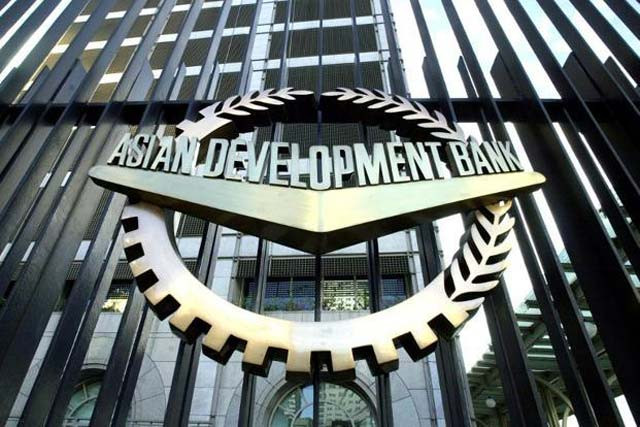ADB announces new $1.2 bn annual package for Pakistan
Funds will support improvements to highways and provincial roads, as well as bus rapid transit schemes in Karachi

The new programme, which runs until 2019, will target six sectors including energy, transport and public sector management, the ADB said. PHOTO: AFP
The Manila-based lending agency has not earmarked any funds for construction of Diamer Basha dam in addition to earlier allocating $15 million under technical assistance for the $14 billion project.
The 2015-19 strategy promises a provisional assistance package of at least $1.2 billion a year on average, which will focus on infrastructure up gradation and institutional reforms.
Two-third of the $6 billion loans will be given on commercial terms while the remaining is concessionary lending. The disbursement is subject to government’s ability to meet all the conditions attached with these project and programme loans.
Read: ADB announces new $1.2 bn annual package for Pakistan
The financial assistance package will target six sectors that include energy, transport, agriculture, natural resources and rural development, water and other urban infrastructure and services; public sector management and the financial sector.
The bulk of the assistance has been earmarked for infrastructure improvements in the power, transport, agriculture, and urban services sectors.
Out of the $6 billion, over $2 billion in loans will be given to the energy sector for improving dilapidated distribution and transmission networks and ensuring financial viability of the sector through increasing power tariffs and reducing line losses.
The ADB has also highlighted the absence of anti-corruption mechanisms, lack of confidentiality of procurement processes, complex internal controls and bureaucratic setup, lack of professionalism and frequent transfers as risks to implementation of reforms programme in the energy sector.
Transport and infrastructure is the second major sector that will benefit from this programme with over $1.7 billion earmarked for improving road network and building mass transit system in Peshawar and Karachi.
An amount of $500 million has also been set aside for improving public sector management. However, its disbursement has been linked with privatisation of four public sector enterprises and restructuring of another three loss-making entities.
Read: Development assistance: ADB to lend $225m for flood relief in Punjab, AJK
The ADB has also approved three-year Country Operation Business Plan, which suggests the sector-specific allocations. The 2015 Business Plan is already under implementation and in the current year, the ADB plans to provide $1.3 billion for the purpose.
This includes $400 million budgetary support for energy sector, $200 million for post-flood highways rehabilitation project, $170 million for Gojra-Shorkot highway project and another $150 million for improving border services.
For year 2016, ADB plans to disburse $1.25 billion including $400 million for power distribution network and $200 million for Sindh roads. In 2017, the ADB may disburse $1.25 billion. It includes $200 million for energy reforms and $100 million each for Karachi Mass Transit Project and Peshawar Bus Transit Project.
In year 2018, the indicative funding will be $1.25 billion.
“The main challenge in Pakistan is to deliver higher, sustained, and inclusive growth to cut poverty and create productive jobs for the growing labor force,” a handout issued by the ADB quoted Werner E. Liepach, Country Director at ADB's Pakistan Resident Mission as saying.
The thrust of the new partnership will be to support the government to improve connectivity, productivity and access to markets and public services, he added.
He observed that Pakistan was on track to achieve the Millennium Development Goal for cutting income poverty but it is off track on several targets, and development overall remains uneven and below potential. Efforts to reduce and restructure fiscal deficits should continue to provide more space for development spending on infrastructure or social services, he suggested.
As per future plans, the bank will provide loans for the rehabilitation of Indus Basin Irrigation System. Given Pakistan’s vulnerability to natural disasters, and rising threats from climate change, it will help establish a government-owned disaster risk fund to mitigate risks and enhance resilience to natural disasters, and to ensure swift responses after calamities.



















COMMENTS
Comments are moderated and generally will be posted if they are on-topic and not abusive.
For more information, please see our Comments FAQ